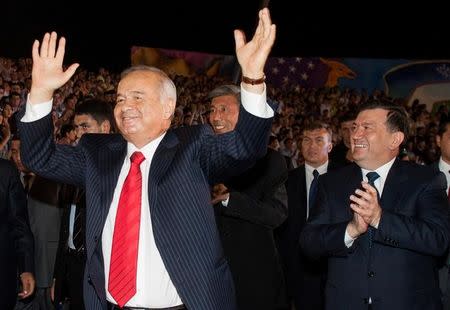Uzbek parliament appoints PM Mirziyoyev as interim president

ALMATY (Reuters) - Uzbekistan's parliament appointed Prime Minister Shavkat Mirziyoyev as interim president on Thursday, a source who saw the written decision of the legislature told Reuters. President Islam Karimov, who had ruled Central Asia's most populous nation for 27 years, died of a stroke last week aged 78. Mirziyoyev, who was the official mourner-in-chief at Karimov's funeral and met Russian President Vladimir Putin this week, is widely expected to become the president of Uzbekistan, an energy-rich country where Russia, the United States and China are vying for influence. Under the Uzbek constitution, a presidential election must now be held within three months. Central Asia pundits say they do not expect any drastic policy changes if Mirziyoyev, a former regional governor, is duly elected president of the mainly Muslim nation of 32 million people that borders Afghanistan. By appointing Mirziyoyev, 59, as acting head of state, the legislature leapfrogged Senate Chairman Nigmatilla Yuldashev, who under the constitution should have led the country during the transition period as acting president after Karimov's death. But Yuldashev, a little-known figure, had declined the role saying he lacked experience, the same source said. The appointment of Mirziyoyev, valued by Karimov as a competent manager, is expected to be officially announced in an evening TV news programme - a usual practice in the secretive nation. Karimov cast his country as a bulwark against militant Islam but drew Western criticism for suppressing political dissent. Human rights groups say there are hundreds of political and religious prisoners in local jails and say torture is practised. In contrast to the West, Putin said during his visit to Tashkent this week he hoped the new Uzbek leader would continue Karimov's work, putting a stamp on Moscow's claim to be the former Soviet republic's closest ally. (Reporting by Dmitry Solovyov; Editing by Gareth Jones)

